Nội Dung Chính
- 1 SPEAKING Work in pairs. Discuss the questions.
- 2 Read the text. How could 'lucid dreaming' help students?
- 3 Put the highlighted compound adjectives in the text into the correct columns.
- 4 Underline the compound adjectives in sentences (1-6) and match them with definitions (a-f). Then answer the questions.
- 5 DICTIONARY WORK Read the Dictionary Strategy. Which of the compound adjectives below are likely to have their own entry? Check your answers in a dictionary.
- 6 Complete the compound adjectives with the words below. Use a dictionary to help you.
- 7 SPEAKING Work in pairs. Discuss the questions in exercise 4. Give reasons and examples.
(Trang 77)
1 SPEAKING Work in pairs. Discuss the questions.1 What was your last dream or nightmare about? 2 Can our dreams help us in our waking lives? 2 Read the text. How could 'lucid dreaming' help students?The idea that we can control our dreams through a technique called 'lucid dreaming' is usually the stuff of sci-fi films. During lucid dreaming, the sleeper knows they are dreaming and can control what happens even deciding to have breathtaking experiences like flying. Now, thought-provoking research has received broad-based support from some highly respected scientists, who think it may not be as far-fetched as it sounds. Lucid dreaming isn't just about mind-blowing experiences. It can be used to improve a variety of skills, from playing the piano to public speaking. It's been shown that people who dream about practising things, like playing the piano, do them better in 'real life' the next day. Well-known athletes also use lucid dreaming to help them deliver record-breaking performances. You don't need to be highly trained to have lucid dreams, but half-hearted efforts won't work, so try the following steps regularly: 1 Do difficult tasks during the day, such as studying a foreign language; it makes lucid dreaming more likely. 2 Decide what you want to dream about before you sleep. 3 As soon as you wake up and are still bleary-eyed, make notes about dreams while they are fresh in your memory.
3 Put the highlighted compound adjectives in the text into the correct columns.
| 4 Underline the compound adjectives in sentences (1-6) and match them with definitions (a-f). Then answer the questions.1 Would you describe yourself as single-minded? 2 Do you ever buy second-hand goods? 3 When did you last watch a light-hearted film? 4 Which school subjects do you find most straightforward? 5 Do you think it's better to be good-looking or talented? 6 Were you a high-spirited child? a attractive b easy c not new d determined e energetic f not serious
5 DICTIONARY WORK Read the Dictionary Strategy. Which of the compound adjectives below are likely to have their own entry? Check your answers in a dictionary.densely populated English-speaking light-hearted much-needed old-fashioned record-breaking 6 Complete the compound adjectives with the words below. Use a dictionary to help you.minded populated reaching saving watering 1 Sarah often forgets things because she's absent-__________ 2 The microwave is one of the best time - __________ devices ever invented. 3 The cakes at the baker's were so mouth- __________ that I wanted to eat them all! 4 That decision could have far-__________ consequences for us. 5 Singapore is one of the most densely __________ places in the world.
7 SPEAKING Work in pairs. Discuss the questions in exercise 4. Give reasons and examples. |

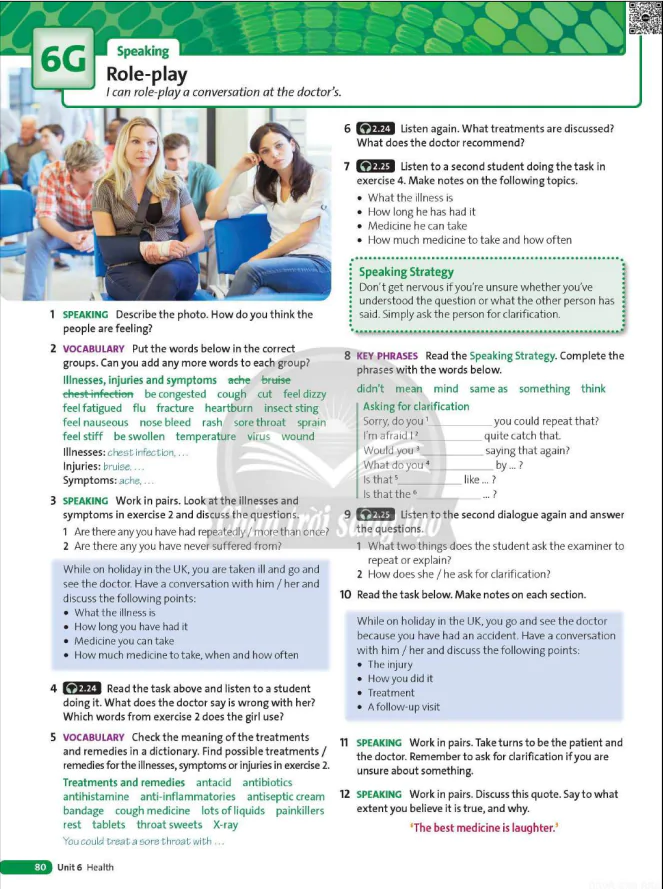
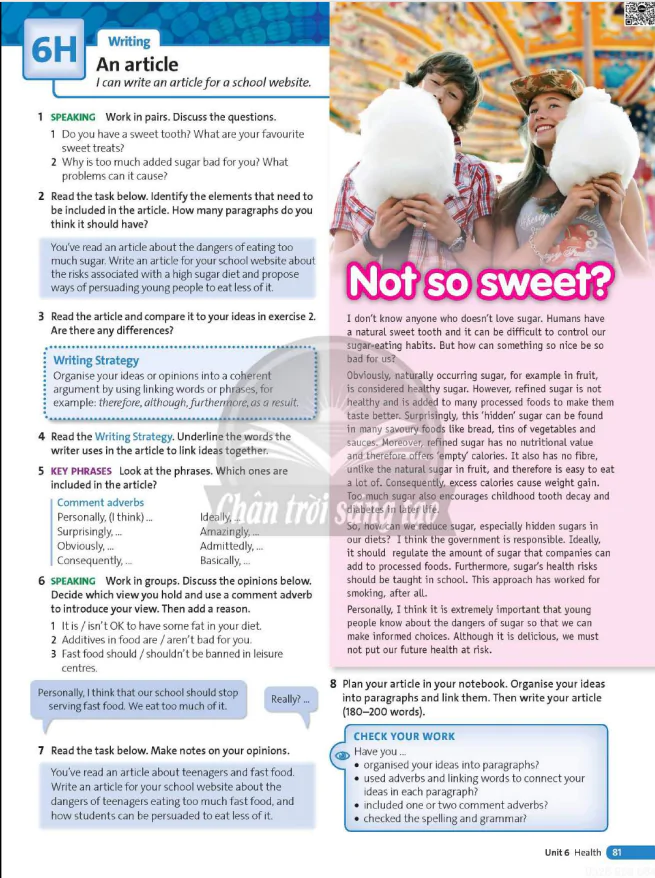
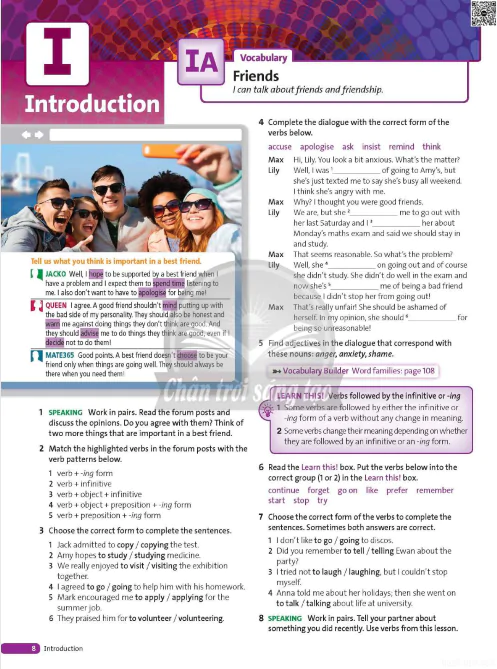
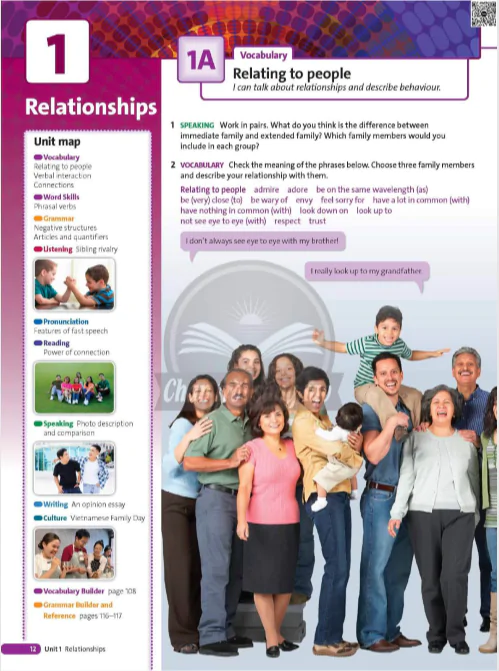
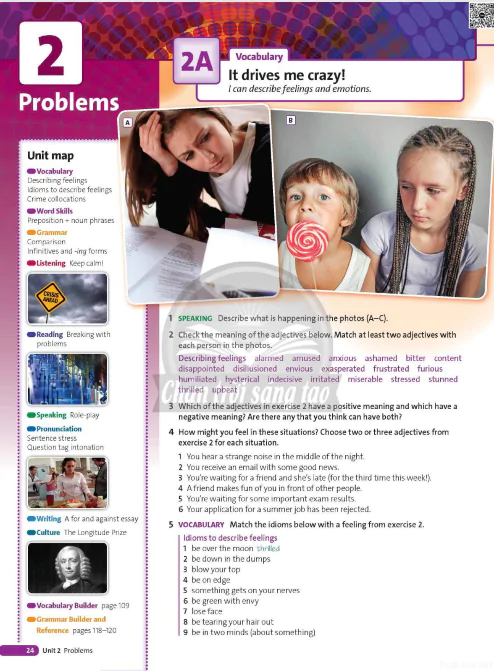
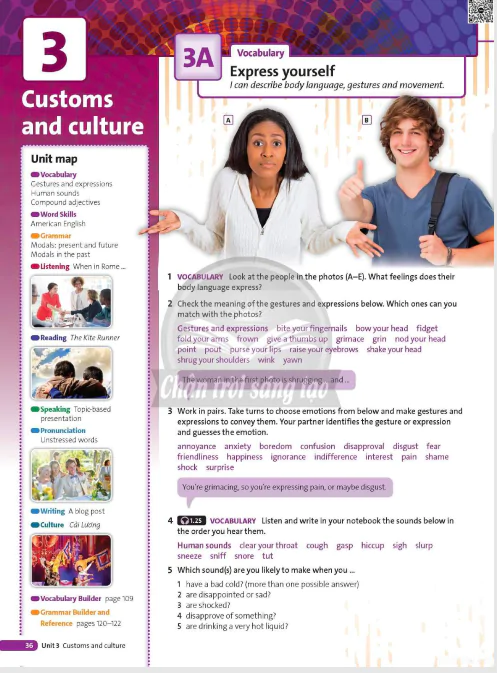
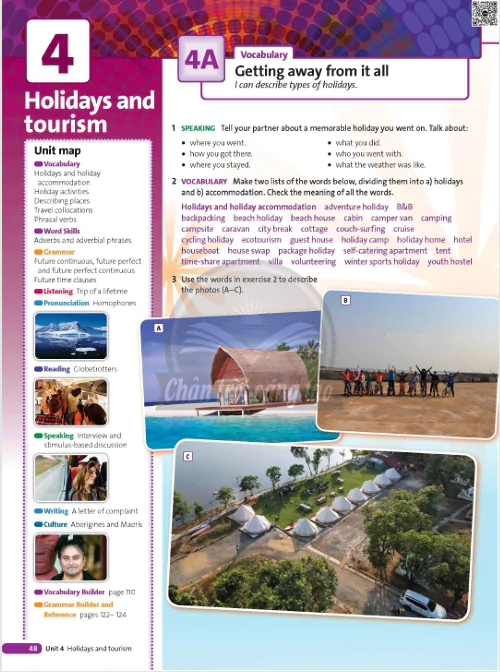
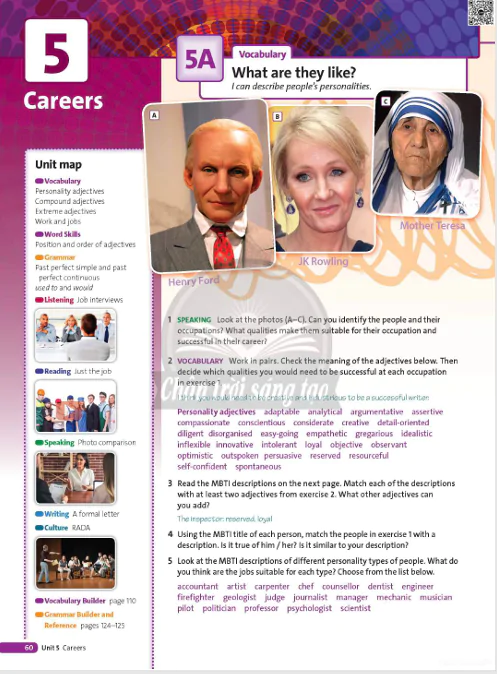
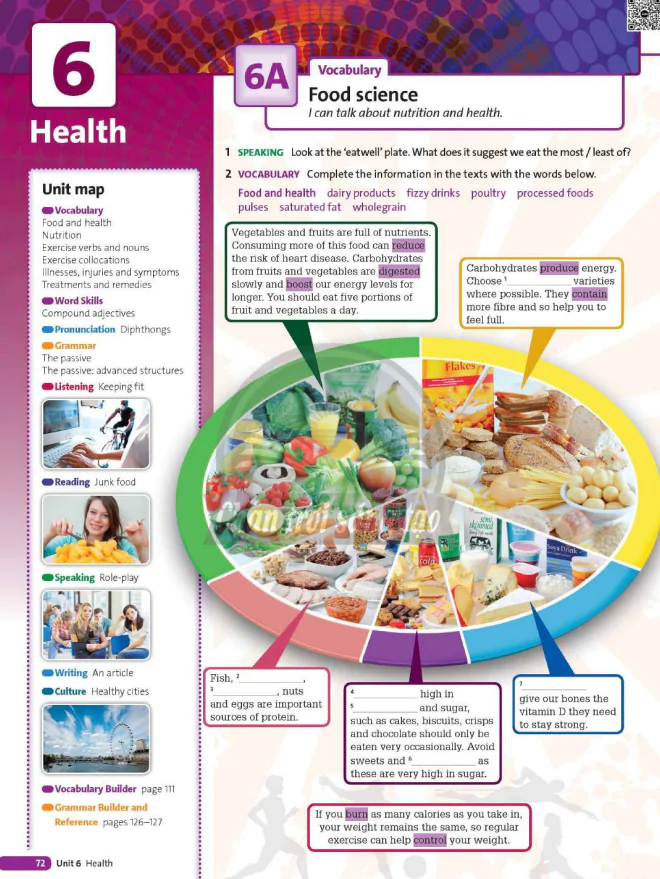


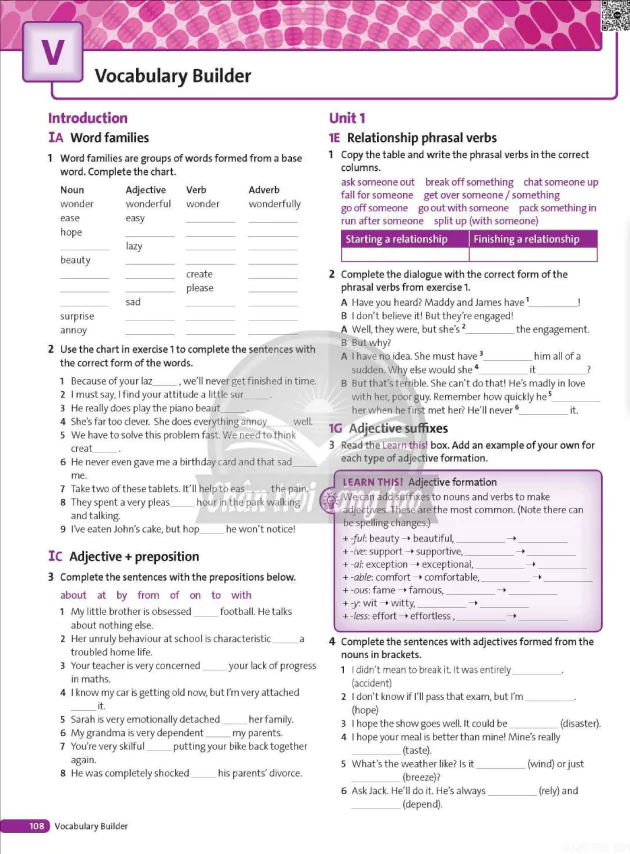
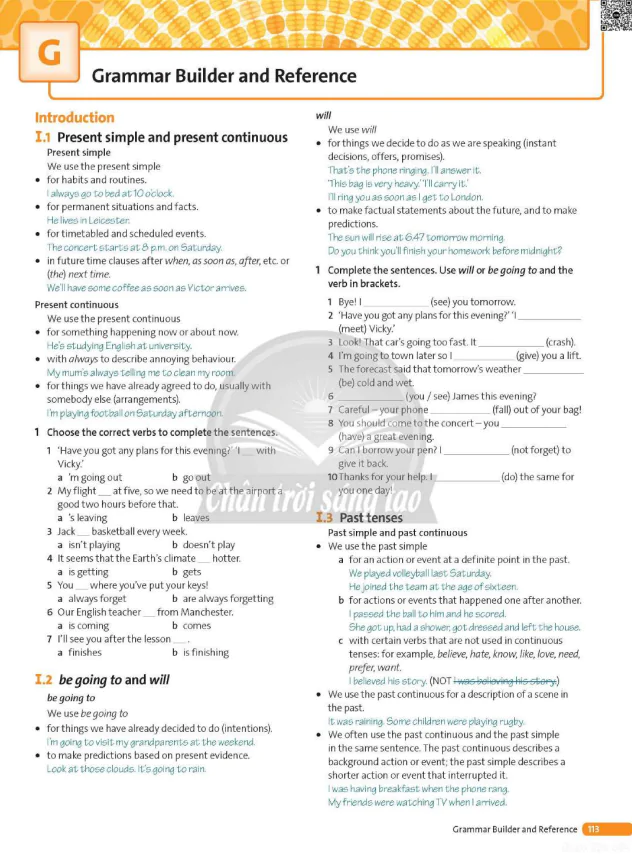













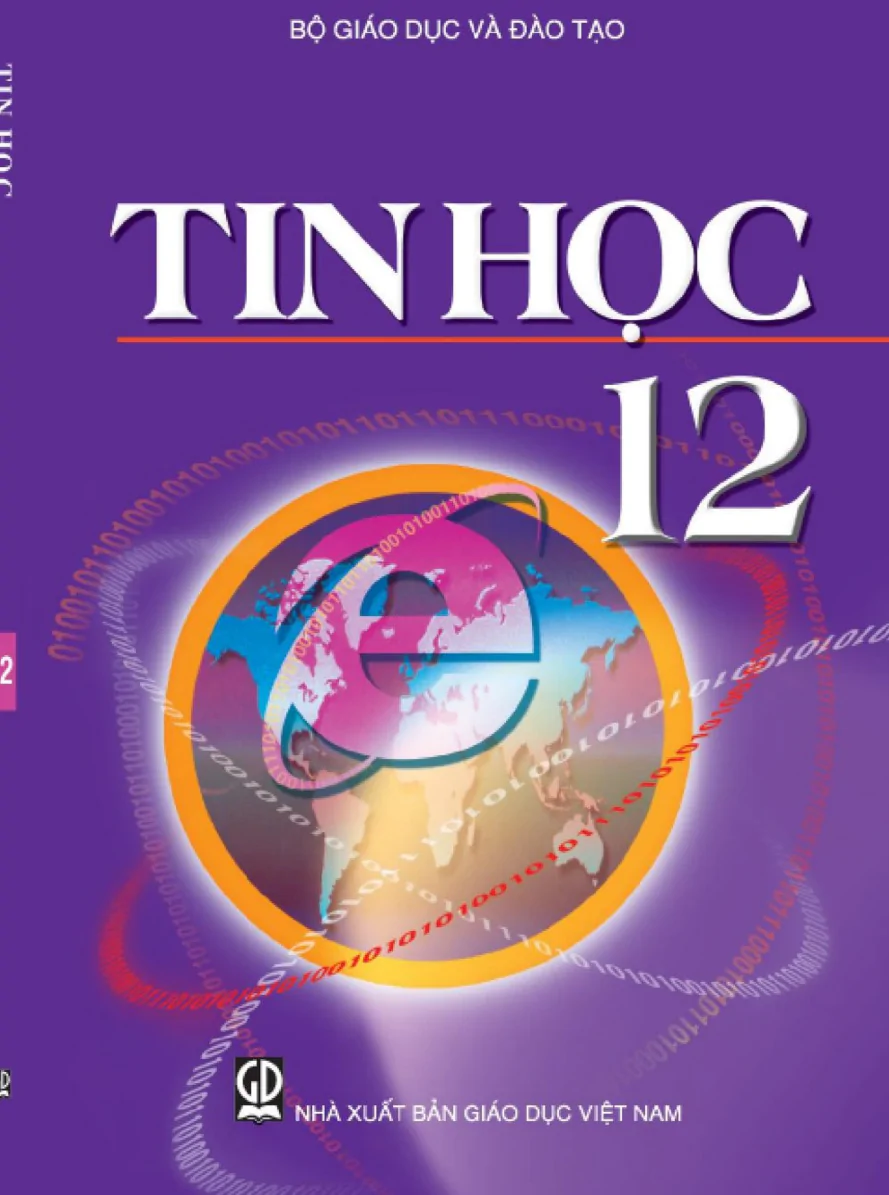
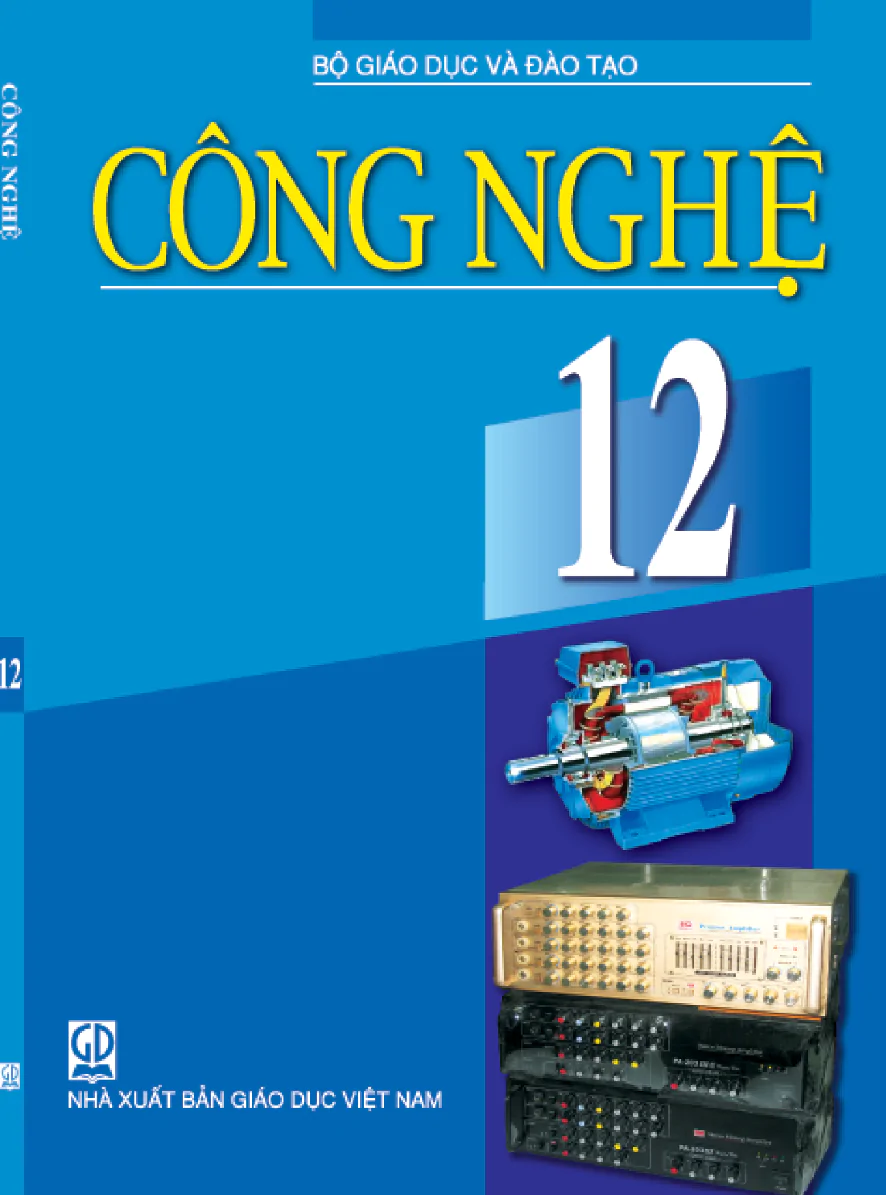



















Bình Luận
Để Lại Bình Luận Của Bạn